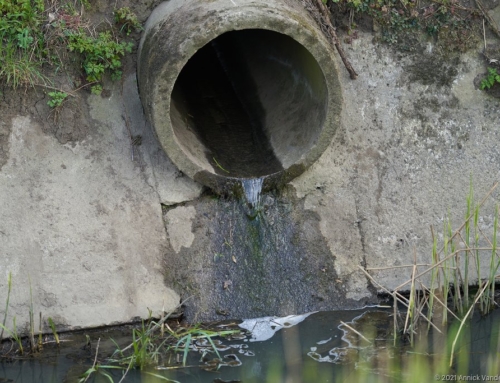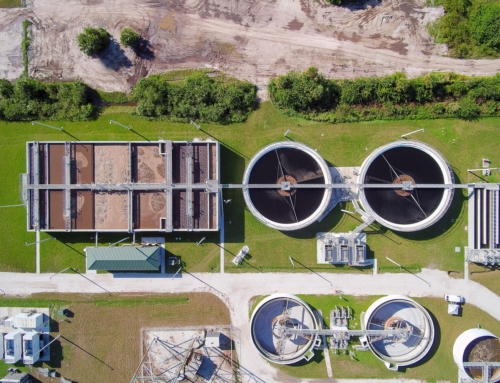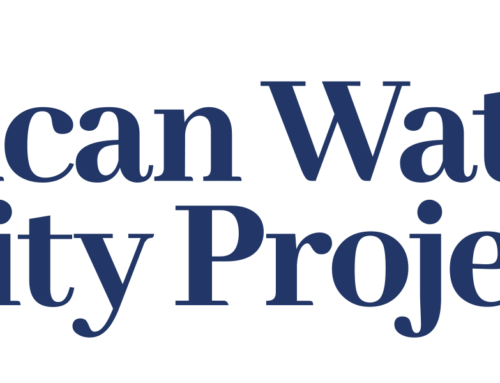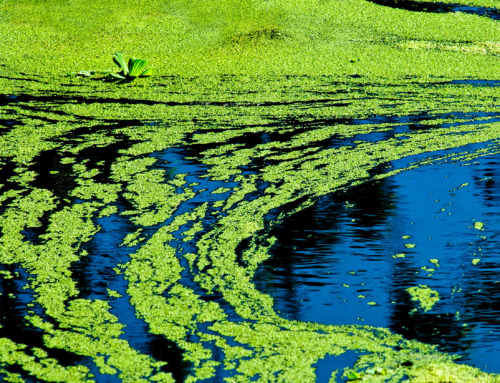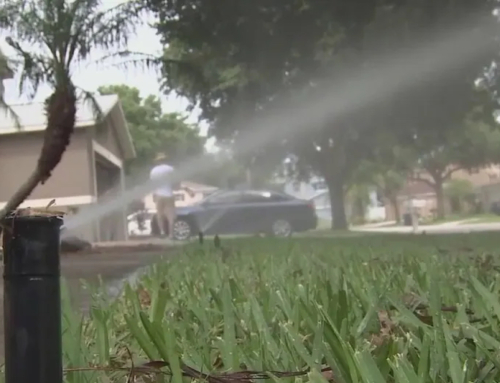
16 June 2020
Governor Ron DeSantis
400 S. Monroe Street
Tallahassee, FL 32399-0001
Dear Governor DeSantis:
The American Water Security Project (AWSP) and the undersigned business owners thank you for your diligence in leading Florida through the global pandemic and a period of domestic unrest.1 With the economic constraints resulting from these events, your administration faces critical fiscal decisions in prioritizing essential elements of the state budget and funding policy-related bills from the legislature. As such, we respectfully request that you stay the course with your campaign promise to improve Florida’s water quality and mitigate algal blooms by signing into law the Clean Waterways Act (SB 712).
Unfortunately, since the commencement of the 2020 legislative session in March, your administration has been under pressure by some not-for-profit environmental groups (ENGOs) to veto this landmark water policy legislation. Their logic, appearing in a series of media OpEds and hit pieces, is an “all or nothing” temper-tantrum asserting that without more significant constraints on agriculture nutrient load contributions, Florida will not realize water quality improvements and algae bloom mitigation. This perspective is patently false, and their arguments are fundamentally without merit.
For example, the recent story published by The Weather Channel, entitled “Legislative Sleight of Hand,” states that unmitigated phosphorus loadings from cattle ranches in the northern Everglades watershed support “the algae that carpet Florida’s beaches.”2 On the contrary, the best scientific information available from the South Florida Water Management District and Florida’s state universities, such as Florida Atlantic University, were summarized in a 2016 SFWMD Governing Board Resolution that stated: “…stopping lake releases or storing water is not enough to solve water quality problems and [coastal] algae blooms occurred in years when there were no lake releases.”3
Specifically, the best scientific information available, as reported in the 2016 SFWMD Resolution, indicates downstream local basin runoff from coastal urban areas contribute 80% of the average annual discharges, 79% of the Total Nitrogen and 87% of the Total Phosphorus loads to the St. Lucie River, and subsequently the coastal ocean. In fact, Florida’s coastal red tide and brown tide blooms are limited by nitrogen, not phosphorus, meaning that these blooms are fueled by coastal nitrogen sources, such as septic tank effluent, municipal sanitary sewage overflows (SSO’s), and urban stormwater runoff.
The Clean Waterways Act provides a comprehensive and forward-looking approach to improving Florida’s water quality by supporting: 1) new stormwater regulations that reduce nutrient loads, 2) upgrades to domestic wastewater infrastructure, 3) conversion of polluting septic tanks to municipal wastewater collection systems, 4) improved regulation of sewage biosolids application, as well as, 4) advancements in BMPs to reduce agriculture nutrient contributions.
In summary, Governor DeSantis, our business futures and the economic future of Florida depend on water quality improvements and mitigation of algal blooms that will result from your signature of this significant water policy legislation into law.
Again, thank you for your leadership in these troubling times, and for your support of legislation that will improve Florida’s water management. Funding investments in water and wastewater infrastructure are vital in terms of putting people back to work, restoring our ecosystems, and restoring the economic productivity of our business community.
Sincerely,
Dr. Peter Barile
Science Director
1 The American Water Security Project is a registered 501c3. Our mission is to promote advancements in water and wastewater management, through education and advocacy, to protect the nation’s surface and drinking waters. We are committed to these efforts so future Americans may live, work, and recreate in healthy environments with clean drinking water.
2 “Legislative Sleight of Hand” The Weather Channel, Meryl Kornfield and Marcus Stern, June 5, 2020
3 South Florida Water Management District. Adoption of Indian River Lagoon and Caloosahatchee Cleanup Initiative. Resolution No. 2016-0712. July 2016.
and the undersigned:
cc: Noah Valenstein
Alex Bickley
Palm Beach County
1. Mendia Boarding School
2. Secret Garden Photography
3. Boom Media, LLC
4. Citrus Salon & Spa
5. Prairie Landscaping, Inc.
6. Bindu, Inc.
7. Yoga Delivered, LLC
8. Pashen Couture, Inc.
9. Eco Fashion World, Inc.
10. Thomas Kirchhoff, AIA, PA
11. Tessoff Realty Group, LLC
12. Great Florida Shellfish Company
13. Florida Shellfish Aquaculture Association Inc.
14. Eltrose Farms
15. F/V (Fishing Vessel) Solo
16. Laurie Elizabeth Images
17. Coston Marine
18. Marine Construction
19. Robert Shaw, P.A.
Franklin County
1. Oyster Boss, LLC
Martin County
1. Sargent Pix, LLC (DBA Sargent Photography)
2. Live Advantage Bait, LLC
3. Manero’s Restaurant
4. North Swell Media, LLC
5. Just-IN-Time Charters
6. Stack of Dimes Welding & Fabrication
7. Stacey Rider, Real Estate
8. Will Rider, Real Estate
Monroe County
1. Low Key Angling
2. Sea Samples, Inc.
Collier County
1. Offshore Naples Fishing and Diving Charters
2. Grand Slam Light Tackle Sportfishing
Brevard County
1. J&J Bait and Tackle Wholesale, LLC
2. Global Yoga Collective, LLC
Leon County
1. Sienna Lee Gardens
Miami-Dade County
1. South Flagler Real Estate Development, Inc.
Broward County
1. Lunkerdog Fishing Charters
2. Riverside Market
Pinellas County
1. Shuler Outdoors, LLC
2. Encino Media, Inc.
3. Dwell Realty
4. Master Tony Taekwondo School
5. Headshot Charters
6. Richter Publishing
7. G2 Design, LLC
8. Telchine Research and Development, LLC
Osceola County
1. Kempfer Ranch
St. Lucie County
1. Impact Surfboards
Volusia County
1. Lopez Surfboards
2. Shea Lopez Surf Camp

